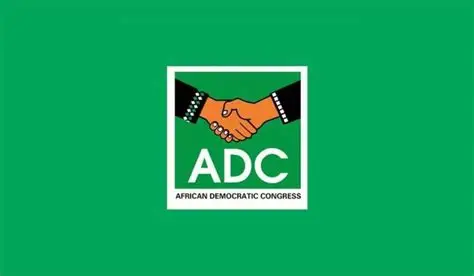As preparations quietly intensify ahead of the 2027 presidential election, the African Democratic Congress (ADC) has declared that it will not be drawn into the longstanding zoning debate, asserting that its focus is on building a robust, grassroots-driven political structure capable of challenging Nigeria’s entrenched political order.
Speaking in an exclusive interview, ADC’s Interim National Publicity Secretary, Bolaji Abdullahi, emphasized that the party’s strategy is centred on competence, merit, and national interest rather than regional power-sharing formulas.
“We are building the party to be a serious contender, not just a participant,” Abdullahi said. “But we are not obsessed with the presidency as if it’s the only prize worth pursuing. That kind of thinking has led to the political dysfunction we see today.”
He added that the ADC is investing in building capacity across all tiers of government—governorships, legislative seats, and state assemblies—with a long-term vision of transforming Nigeria’s political landscape.
The party’s position comes amid public speculation that the coalition behind the ADC had shelved its application to register a new political party, the All Democratic Alliance (ADA). However, Dr. Umar Ardo, Secretary of the coalition’s Sub-Committee on the Feasibility of Registration, dismissed such claims, insisting the process remains active.
Abdullahi explained that ADC’s emergence was a deliberate response to the shrinking space for credible opposition in Nigerian politics. According to him, while the ruling All Progressives Congress (APC) was a product of expedient merger politics in 2013, the ADC is a conscious and values-driven movement designed to fill the opposition vacuum.
“For 10 years, Nigerians have lacked a viable opposition,” Abdullahi said. “The APC has governed without meaningful checks, and the PDP has failed to offer coherent alternatives. The ADC is stepping in—not just to oppose, but to present a better, people-centred way of doing politics.”
He criticised the regional and ethnic divisions that continue to define Nigerian politics, arguing that both the APC and PDP have prioritised power rotation over national development and competence.
“Our interest is not just in changing those who occupy political offices but in changing the very nature of politics in Nigeria,” he said. “We are promoting politics based on principles, practical solutions, and a vision of national renewal.”
Abdullahi highlighted recent successes in party mobilisation, including large turnouts at rallies in Ekiti and Osun states, attributing the growing support to the party’s community-based organising and credible leadership.
“Real political change begins at the grassroots,” he stated. “In the South-East and South-South, beyond the profile of Peter Obi, we have credible leaders putting in the work. In the South-West, Aregbesola’s momentum in Osun is a clear sign that something is shifting.”
He stressed that the ADC’s current priority is readiness and organisation at the grassroots level, not political noise or reactionary rhetoric.
“Ours is a politics of ideas and responsibility. We are not here to simply rename the old system. The ADC offers Nigerians a genuine alternative—one rooted in discipline, vision, and the voice of the people,” he concluded.
With just under two years to the next general elections, the ADC appears to be positioning itself as a credible third force, determined to disrupt Nigeria’s two-party dominance with a focus on substance over symbolism.

Comments